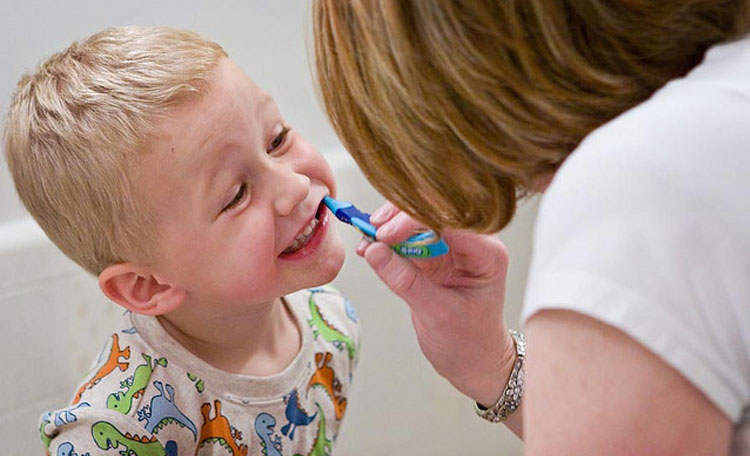Dental health is a necessary part of holistic health. The human mouth is exposed to bacteria on a daily basis via food particles and the environment. For children (and adults) with cerebral palsy, oral and dental health can be a challenge due to the physical limitations associated with many types of cerebral palsy.
Cerebral palsy is a motor movement disorder that can affect things like speech, swallowing, saliva production and more. A child with cerebral palsy may also suffer from oversensitive nerves. Given the fact that there is a multitude of nerve endings in the mouth, special consideration needs to be taken when brushing your child’s teeth. Many of those with cerebral palsy may need specialized care from oral health experts who have experience dealing with Cerebral Palsy patients.
One important thing to watch out for is “nursing bottle syndrome.” This refers to the rapid decay of the teeth which sometimes occurs if children are given a bottle at bedtime (or nap time). To avoid this, make sure that your child is not allowed to fall asleep with a bottle in his or her mouth.
Brushing Tips
To begin with, always make sure to use a soft bristled toothbrush to minimize abrasion and any uncomfortable feelings on the child’s part. If the child cannot tolerate brushing, consider using a soft cloth with a bit of mildly abrasive toothpaste or antiseptic solution. Use slow, circular motions and concentrate on problem areas such as the back teeth as well as the gum line.
While it’s advisable to brush a few times a day (especially just before bedtime), if your child shows resistance to brushing, try to find times when he or she is in a good mood. This can provide the best chance at success in the long run.
If your child has difficulty controlling head and trunk movement, find a comfortable position where you can control his or her posture. It can also be helpful to purchase a toothbrush with an adapted handle so they they can maintain their grasp.
Different Specialists for Different Problems
When it comes to visiting a dentist, it’s important to note that there are various types of doctors that you may need to see to ensure that oral health problems are kept in check. For example, a child with an overbite may need to see an orthodontist to have special braces fitted to rectify this problem. Dentists, on the other hand, fill cavities and provide cleaning to get rid of plaque. Cosmetic dentists can help in ensuring that the child’s smile is improved which can go a long way in boosting his or her self-esteem.
Tooth decay and periodontal diseases is very common in people with Cerebral Palsy. This is because they may not produce enough saliva to help get rid of food debris and bacteria in the oral cavity. Additionally, their tongues may not have the control necessary to adequately keep the teeth clean. Food debris and bacteria coats the teeth, forming plaque which may lead to gum disease.
A good dentist versed in treating dental problems of people with cerebral palsy will make sure that your child has every opportunity to maintain a healthy mouth. They will also work hand-in-hand with a primary care doctor to develop an oral care plan that works best for the patient.

